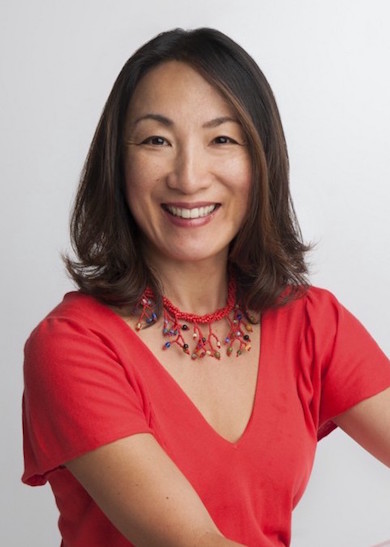
Japan is at a crossroads. On one hand, economic realities are pressing, with Prime Minister Shinzo Abe pushing for his “womenomics” initiative and the empowered voices of Japanese feminists. On the other hand, social realities are holding strong. Women often struggle to climb the corporate ladder and scramble to find suitable daycares for their children. Generally speaking, a whiff of female empowerment or institutional change is met with skepticism and apprehension in many professional environments.
It has become all too easy to look at the Japanese work environment and just shake our heads in dismay, as women work to get on an equal playing field with their male coworkers. But while we’re all drowning under these seemingly endless waves of pessimistic tides, many are taking matters into their own hands and kicking some serious ass.
Metropolis decided to interview three female entrepreneurs who are doing just that, and invited them to share their stories.

Tove Kinooka
When we decide to be more productive and dedicated, we usually buckle down and work for hours on end, chewing on overtime. That’s admirable, let’s admit, but while we celebrate with self love and proudly declare ourselves as workaholics just for spending a few extra hours at the office, Kinooka takes the very definition of dedication to a whole new level.
Kinooka started her company Global Perspectives from a hospital bed as she was preparing to give birth to her second child. With the help of her loving husband and her supportive co-founder, she would drag along her IV and infusion pump, and sneak her way into the cafeteria to take on meetings and finish up paperwork. “It kept me sane, really,” she explains. “Being at the hospital, waiting to give birth when I had just left my old job, I had to channel all that pressure somewhere.”
Having first arrived in Japan as an English teacher, she developed a keen interest in the cultural subtleties of business conduct. “I realized that it wasn’t necessarily the language barriers that my students struggled with,” she explains. “Cultural differences go a long way in successful careers. It became my obsession.”
She then began developing corporate training and educational programs at ALC English school. As family demands kept pressing, however, and the boutique firm grew in demands and altered in goals, she found that it was time for a change. “I became an entrepreneur to build an independent career. I needed to to develop my own timetable to accommodate my family, and wanted to focus only on what I really love doing. That freedom was the seductive nature of entrepreneurship,” she tells us.
Despite the difficulty, Kinooka recommends us to consider the entrepreneurial route. “Sure it can be a challenge, especially as a mother, in my case, but I never regret it. As tough as it is, as many doubts that have seeped in throughout my career, I’m doing what I love. Having the right support makes anything possible. Find it and thrive.”

Amber Chook
Chook moved to Japan at the young age of 15, knowing no Japanese whatsoever. Her high school at the time was a rather humble one, with no real prospects for its graduates.
It didn’t take long for Chook to impress. She pushed aside her high school studies and began paving her own path. She taught herself English, studying over 14 hours a day, and made her way into university, where she founded TedxRoppongi. “If I had followed the conventional path for people in my high school, I would never amount to much,” she says. “I couldn’t have that. My future was in my own hands and it was time to take charge.”
When Chook entered the workforce, her relentless drive persisted. She joined an ambitious, diverse team at one of Japan’s largest tech companies. Being the young graduate that she was, Amber constantly looked to prove herself, working long hours and often sacrificing any work-life balance in the process.
“I realised that there was something wrong,” Chook explains. “I realised that there was no ladder to climb in the first place. No matter how well I, or any of my female coworkers would perform, there seemed to be no chance of any serious recognition.”
After establishing her network and skill set, she finally set out as an independent event producer, dedicating her time to female empowerment and running projects like Google’s WomenWill, an initiative to create economic opportunities for women everywhere.
“The independence that comes with this career choice comes with responsibility towards yourself and others. Empower others and you’ll be rewarded.” Now, Chook continues to build programs to support budding female entrepreneurs, and recently co-founded SheShaped, an initiative that aims to celebrate and empower women to flourish across all industries.

Emi Takemura
Takemura is an all-star heavyweight champion in the world of Japanese female entrepreneurs. Not only is she the Co-Founder of Peatix, the mobile ticketing platform, but she’s also the Founder of FutureEdu Tokyo, an education-focused community. Moreover, she is a fellow at Mistletoe, an impact studio with a mission to support entrepreneurs in turning challenges into meaningful social impact.
In regards to the feminist movement in Japan, she welcomes the changes that it brings, but approaches the matter with apprehension. “The hype is a double-edged sword,” explaining that on one hand, people are finally discussing the challenges that women face; on the other hand, it creates a sense of stagnancy. “You start to believe the hype, that you’re brilliant. While it’s good to be active and confident, especially within that space, you should be careful to not hold on to your success. You have to keep building. Keep improving.”
From Takemura’s perspective, although major initiatives are developing in Japan’s entrepreneurial scene, many are missing the core issue. The bottleneck she sees is education.
“We’re doomed without education,” she warns. “All these new programs will go to waste if the younger generation isn’t more receptive and proactive. We need to develop a culture that pushes beyond the conventional.”
She leaves us with sage advice for Japan’s youth, especially younger women. “Build marketable skills. It’s good to be excited about a specific movement or cause, but make sure to build solid foundations—a skill set. Otherwise, you’re lost.”





